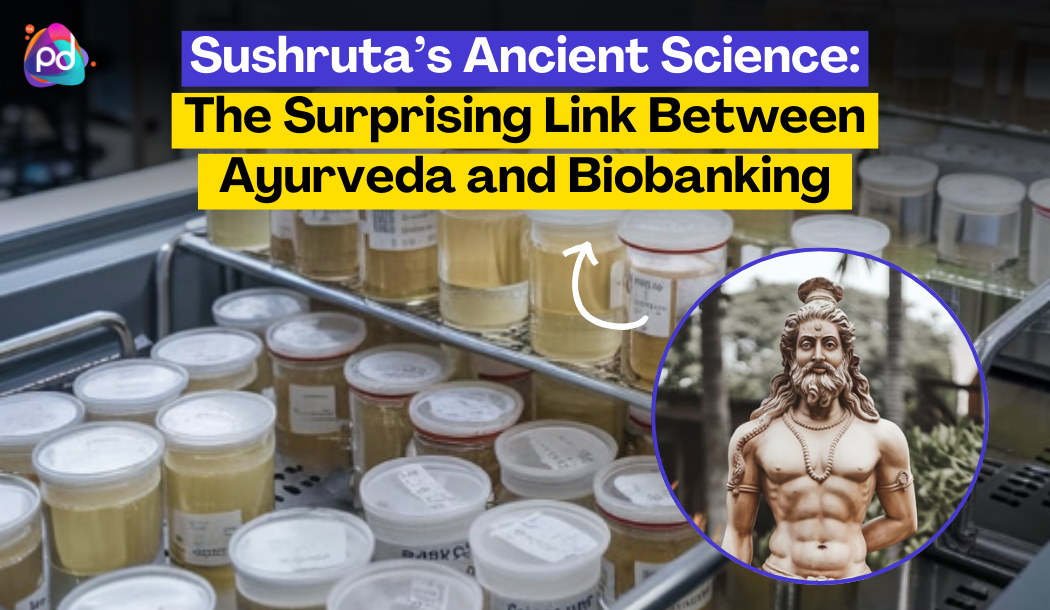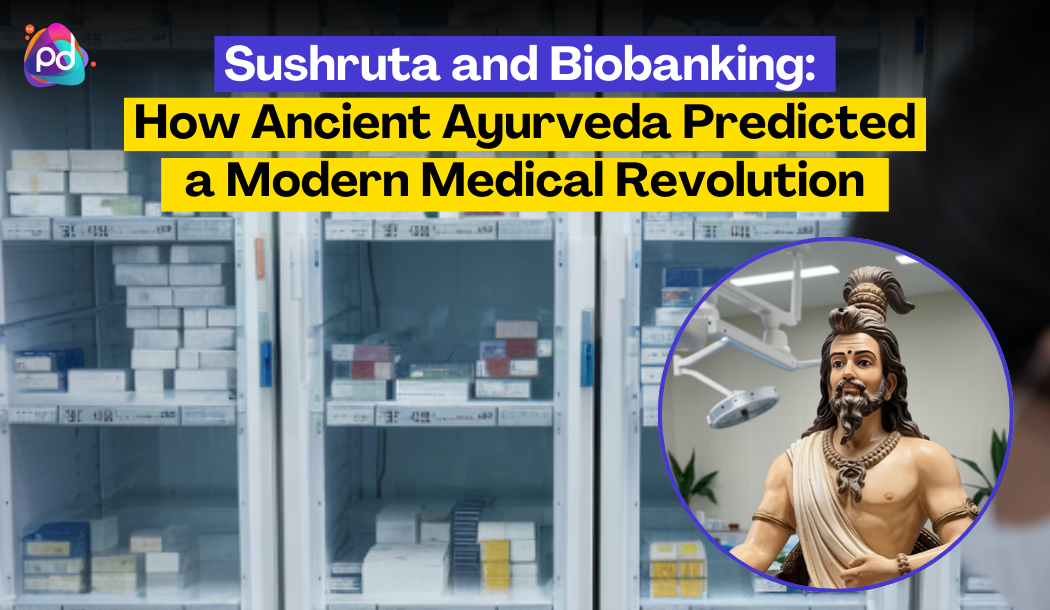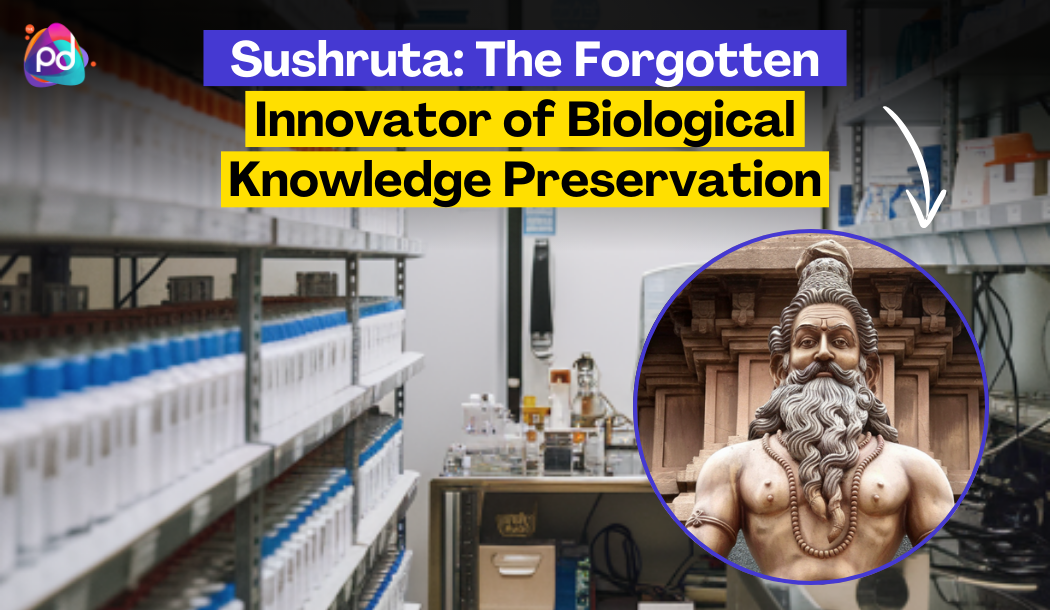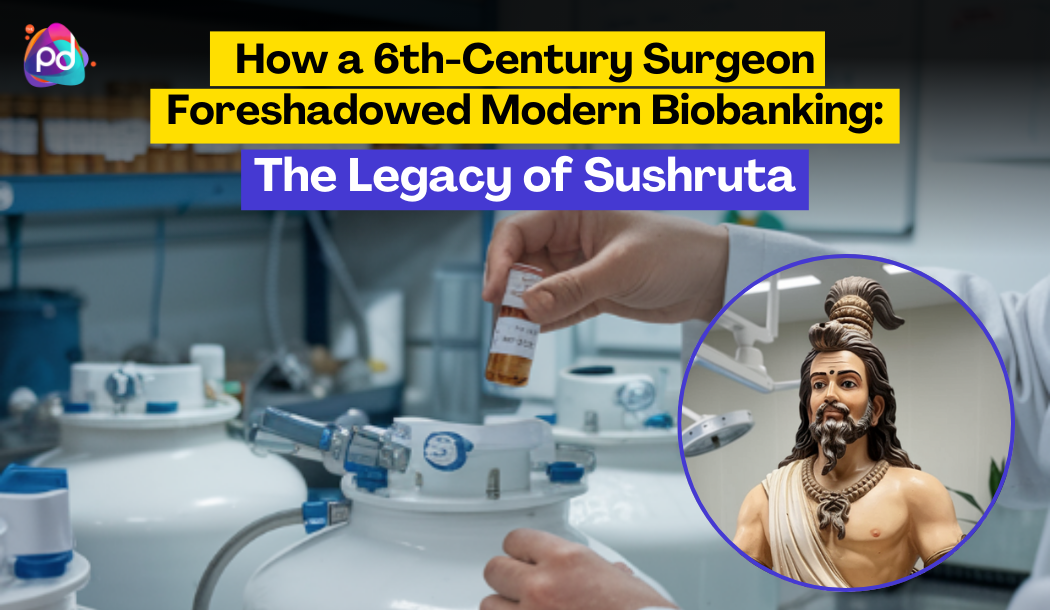Sushruta's Ancient Science: The Surprising Link Between Ayurveda and Biobanking
In the rapidly evolving field of biobanking, where cutting-edge technology meets modern medicine, ancient wisdom might seem far removed. However, the principles laid down by Sushruta, the legendary Ayurvedic surgeon, reveal fascinating parallels with the foundational concepts of biobanking. His pioneering work in medicine and surgery reflects an understanding of biological preservation, precision, and data management that resonates with modern practices in biobanking solutions.
This blog explores the unexpected connections between Ayurveda and biobanking, shedding light on how Sushruta's ancient science offers insights into modern biological sample preservation and research.
Who Was Sushruta?
Sushruta, often referred to as the "Father of Surgery," was a renowned physician and surgeon in ancient India. His contributions to the Sushruta Samhita, a comprehensive medical text, included groundbreaking surgical techniques, detailed anatomical studies, and innovative approaches to treating diseases.
One of the most intriguing aspects of Sushruta’s work is his emphasis on the systematic study of human anatomy and the careful preservation of biological specimens, principles that align remarkably with today’s biobanking practices.
Core Principles of Ayurveda and Their Relevance to Biobanking
Ayurveda, the traditional Indian system of medicine, revolves around maintaining balance and harmony in the body. While it primarily focuses on holistic healing, several Ayurvedic principles reflect an early understanding of concepts central to biobanking.
1. Preservation of Biological Integrity
- In Ayurveda, the preservation of bodily tissues (known as dhatus) is considered essential for maintaining health.
- Similarly, biobanking emphasizes preserving the integrity of biological samples, such as tissues, blood, and DNA, to ensure reliable research outcomes.
2. Systematic Documentation
- The Sushruta Samhita meticulously documents surgical procedures, medicinal preparations, and case studies—an ancient form of data annotation.
- Modern biobanking relies on detailed sample annotation, linking specimens with clinical, demographic, and genetic data for comprehensive analysis.
3. Ethical Considerations
- Ayurveda stresses the importance of ethical practices in medicine, including informed consent and respect for human dignity.
- Biobanking follows strict ethical standards, ensuring donor consent, data privacy, and compliance with regulatory frameworks like GDPR.
4. The Use of Natural Preservatives
- Ancient Ayurvedic texts describe the use of natural substances like honey, ghee, and herbal extracts for preserving tissues and organs.
- Biobanking employs advanced cryopreservation techniques, but the underlying goal of preventing degradation remains the same.
Biobanking: Modern Science Rooted in Ancient Wisdom
While the tools and technologies have advanced, the core ideas of preservation, systematic study, and ethical practice remain universal. Here's how Sushruta’s principles align with the goals of modern biobanking:
1. Preservation for Future Use
Just as Sushruta emphasized the preservation of knowledge and specimens for teaching and research, biobanks store biological samples to support future medical breakthroughs.
2. Advancing Personalized Medicine
Ayurveda’s focus on individualized treatment, based on a person’s constitution (Prakriti), aligns with modern precision medicine, which relies on biobanking to tailor treatments based on genetic and biological data.
3. Collaboration Across Generations
Sushruta’s teachings were preserved and passed down, much like biobanks today serve as repositories of data and specimens for future generations of researchers.
The Global Impact of Biobanking Inspired by Ancient Practices
Biobanking is a cornerstone of global healthcare innovation, supporting research in areas like:
- Rare diseases
- Cancer therapies
- Genomic medicine
- Pandemic preparedness
By understanding the historical roots of these practices, we gain a deeper appreciation for the continuity of human ingenuity in medicine.
The Future of Biobanking: Combining Ancient Insights with Modern Technology
As biobanking continues to evolve, integrating ancient insights with modern technology can offer new perspectives. The principles of Ayurveda, particularly its emphasis on ethical practices, personalized care, and preservation, remain relevant in addressing modern challenges such as:
- Ensuring equitable access to biobanks.
- Promoting sustainable biobanking practices.
- Balancing technological advancements with ethical considerations.
Conclusion
The surprising link between Sushruta's ancient science and modern biobanking highlights the timeless relevance of preserving biological and medical knowledge. By bridging the gap between Ayurveda and modern science, we can explore innovative ways to advance research, improve healthcare, and honor the legacy of pioneers like Sushruta.
At Vigisolvo, we carry forward this legacy by offering state-of-the-art biobanking solutions, combining the wisdom of the past with the innovation of the future.
Contact us today to learn more about how our biobanking services can support your research goals and drive meaningful change in the healthcare industry.




